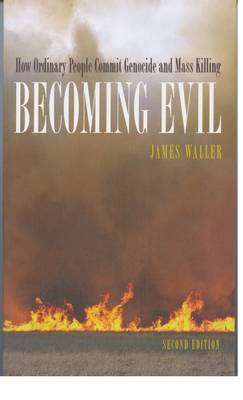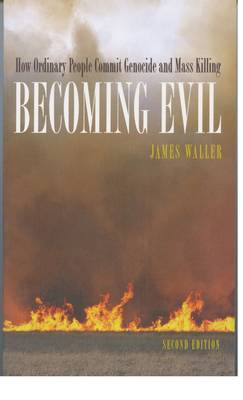
- Afhalen na 1 uur in een winkel met voorraad
- Gratis thuislevering in België vanaf € 30
- Ruim aanbod met 7 miljoen producten
- Afhalen na 1 uur in een winkel met voorraad
- Gratis thuislevering in België vanaf € 30
- Ruim aanbod met 7 miljoen producten
Zoeken
€ 46,95
+ 93 punten
Omschrijving
The first edition of Becoming Evil spoke unforgettably to a world shell-shocked by 9/11 that faced a new war on terror against members of an Axis of Evil. With this second edition, James Waller brings us up to date on some of the horrific events he used in the first edition to illustrate his theory of extraordinary human evil, particularly those from the perennially troubled Balkans and Africa, pointing out steps taken both forward and back. Nearly a third of the references are new, reflecting the rapid pace of scholarship in Holocaust and genocide studies, and the issue of gender now occupies a prominent place in the discussion of the social construction of cruelty. Waller also offers a reconfigured explanatory model of evil to acknowledge that human behavior is multiply influenced, and that any answer to the question "Why did that person act as he or she did?" can be examined at two levels of analysis-- the proximate and the ultimate. Bookended by a powerful new foreword from Greg Stanton, vice-president of the International Association of Genocide Scholars, and a devastating postscript that addresses current outbreaks of genocide and mass killing, this new edition demonstrates that genocide is a problem whose time has not yet passed, but Waller's clear vision gives hope that at least we can begin to understand how ordinary people are recruited into the process of destruction.
Specificaties
Betrokkenen
- Auteur(s):
- Uitgeverij:
Inhoud
- Aantal bladzijden:
- 384
- Taal:
- Engels
Eigenschappen
- Productcode (EAN):
- 9780195314564
- Verschijningsdatum:
- 22/03/2007
- Uitvoering:
- Paperback
- Formaat:
- Trade paperback (VS)
- Afmetingen:
- 168 mm x 234 mm
- Gewicht:
- 530 g

Alleen bij Standaard Boekhandel
+ 93 punten op je klantenkaart van Standaard Boekhandel
Beoordelingen
We publiceren alleen reviews die voldoen aan de voorwaarden voor reviews. Bekijk onze voorwaarden voor reviews.











